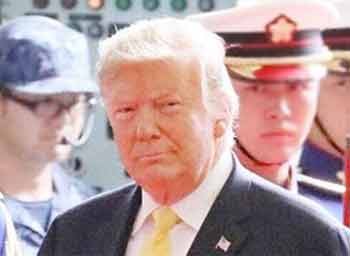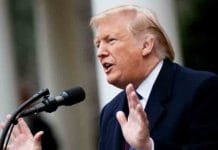A near-final deal to keep TikTok operational in the U.S. was abruptly halted after Trump’s fresh tariff announcement reignited tensions with Beijing.
Washington D.C. | April 5, 2025 — A long-anticipated deal that could have secured TikTok’s future in the United States is now in limbo, after Beijing abruptly withdrew its informal support following fresh U.S. tariff threats. The Chinese tech firm ByteDance, which owns TikTok, had been in advanced talks with American investors and the Trump administration to form a U.S.-based company with majority American ownership. But that fragile agreement fell apart within hours of President Trump’s announcement of new retaliatory import duties targeting China and other countries.
A person familiar with the matter, who spoke on condition of anonymity, revealed that ByteDance had been prepared to greenlight the deal, pending only formal regulatory clearance from Chinese authorities. However, once the White House moved ahead with new tariff plans, ByteDance representatives reportedly called the White House directly to inform them that the deal would not proceed without a broader dialogue on trade and tariffs.
Tariffs Reignite Geopolitical Tensions
The White House’s announcement on Thursday of fresh tariffs—aimed at punishing countries allegedly engaged in unfair trade practices—was the final trigger. China’s retreat is being viewed as a strategic pushback rather than a mere business objection. For Beijing, the TikTok deal had become entangled in broader trade and diplomatic calculations, making any unilateral business decision politically risky.
“Until the tariff announcement, there was quiet optimism on both sides,” the insider told INAV News. “But once the new executive order was signed, Beijing hit pause. TikTok is now a bargaining chip again.”
Trump Extends TikTok Ban Deadline
Despite the setback, Trump proceeded to sign an executive order that extends the looming ban on TikTok by another 75 days. The ban, originally set to take effect Saturday, had been passed by Congress last year due to national security concerns over data privacy and Chinese surveillance fears.
Trump administration officials had spent months negotiating with ByteDance, alongside potential investors, including those connected to Vice President J.D. Vance’s team. The deal envisioned the creation of a new U.S.-based entity, with majority American control, that would oversee TikTok’s operations and data governance in the country.
Political Stakes and Business Uncertainty
The political stakes surrounding TikTok have only grown since Trump’s return to the Oval Office. The app, with over 150 million U.S. users, is seen as both a cultural force and a national security concern. For Trump, successfully reshaping TikTok into a U.S.-controlled company could be a symbolic win in his larger China policy, which has grown more combative during his second term.
Analysts say Beijing’s sudden change in tone reflects its unwillingness to appear as conceding under U.S. pressure. “China sees these tech deals as part of a broader sovereignty issue,” said a trade expert at the Center for Strategic Technology. “They won’t greenlight TikTok’s restructuring if it looks like a political defeat.”
What’s Next for TikTok?
As of Friday, no new timeline has been set for resuming the deal, and ByteDance has made no public statement. Experts suggest the deal could still be revived if high-level U.S.-China trade talks resume, but uncertainty looms.
For now, TikTok remains in the crosshairs of global geopolitics—a popular app caught in the tug-of-war between Washington and Beijing.
















